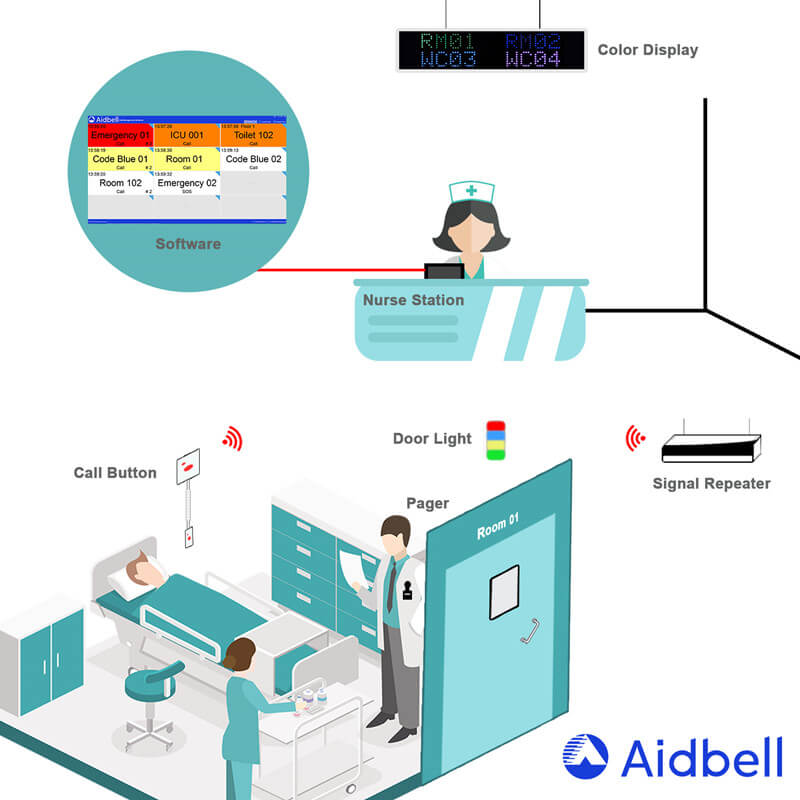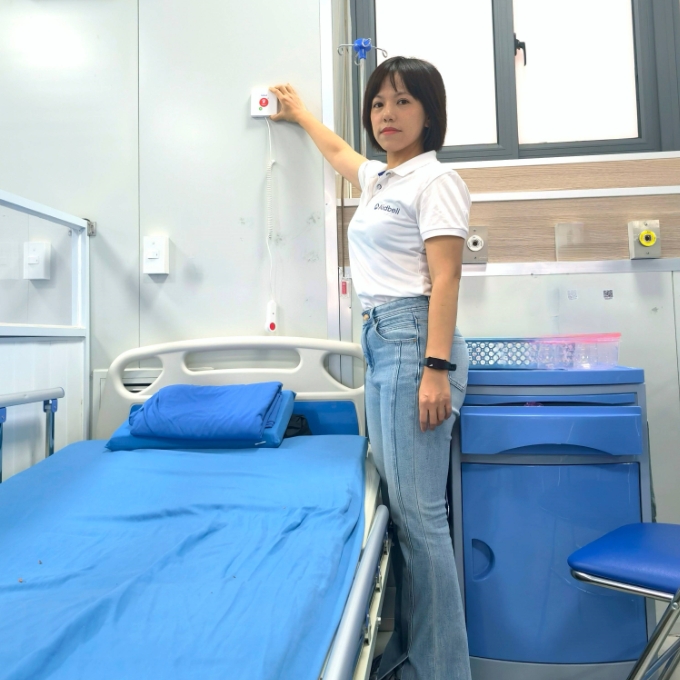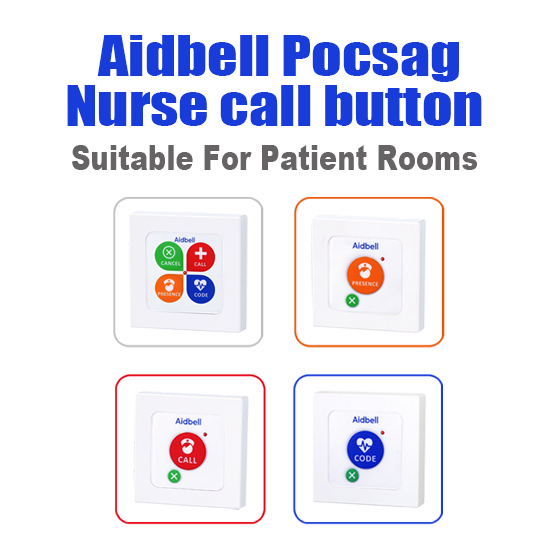The Importance of Wireless Nurse Call Systems in Hospice Care

Hospice care is a specialized form of healthcare that focuses on providing support and comfort to patients who are facing serious illnesses and nearing the end of their lives. In this sensitive and critical environment, communication between patients and caregivers is of utmost importance. That’s why wireless nurse call systems are becoming increasingly popular in hospice care facilities.
In this article, we will explore the importance of wireless nurse call systems in hospice care.
Let’s get started.
Increased Patient Safety
Patients in hospice care often have complex medical conditions and require a high level of specialized care. Any lapse in patient safety can have severe consequences. Wireless nurse call systems can help ensure patient safety by providing a quick and efficient means of communication between patients and medical staff.
Quick and effective communication can be especially important for patients who are at risk of falling, have mobility issues, or require frequent monitoring. With wireless nurse call systems, patients can quickly summon help whenever they need it, reducing the risk of accidents and injuries.
Wireless nurse call systems can also alert medical staff to potential safety risks such as patients wandering off or attempting to leave their beds unassisted. This can help prevent accidents and injuries, ensuring that patients remain safe and secure.
Additionally, it is possible to program wireless nurse call systems to provide alerts if a patient has not responded to a call within a specific period. This ensures that patients do not go unassisted for an extended period, reducing the risk of falls and other adverse events.
Enhanced Communication
Wireless nurse call systems can also enhance communication between patients and caregivers. Patients can use the calling device to alert caregivers to their needs, and caregivers can respond quickly, providing reassurance and support.
This can help build trust between patients and caregivers, which is important in hospice care, where patients may be dealing with emotional and psychological challenges.
Enhanced communication also helps reduce caregiver stress. When caregivers can communicate quickly and efficiently with patients, they are also able to ask for assistance when needed, this greatly reduces the responsibility on their shoulders.
Effective communication also helps to reduce caregiver burnout by ensuring that patients receive the correct treatment, reducing the risk of medical errors and adverse patient outcomes. This can lead to better job satisfaction and improved mental health for caregivers.
Increased Patient Satisfaction
Wireless nurse call systems allow patients to easily notify hospice staff when they need assistance such as for pain management or other care needs. This results in faster response times and increased patient satisfaction.
Wireless nurse call systems also improve communication between patients and hospice staff. With improved communication, patients feel more connected and supported during their hospice stay. The caregivers in the hospice can use the wireless nurse call system to communicate with patients, helping to build trust and improve the overall patient experience.
Moreover, wireless nurse call systems give patients the autonomy they need during their hospice stay. Patients feel empowered to take control of their own care needs, which can help to increase their sense of autonomy and dignity. The patients can request help as needed, leading to greater feelings of control and independence.
Compliance with Regulations
Wireless nurse call systems can also help hospice care facilities to comply with regulations and standards. Many healthcare regulatory bodies require facilities to have systems in place to ensure patient safety and facilitate communication between patients and caregivers. Wireless nurse call systems can help facilities meet these requirements, ensuring that they are providing high-quality care to their patients.
What’s more, with wireless nurse call stems, it is easy to track staff performance and hold them accountable for responding to patent needs and fulfilling their duties. This can help ensure compliance with regulatory requirements related to staffing and patient care.
Wireless nurse call systems also help with the management of alarms and alerts from patient monitoring systems, which is an important aspect of patient safety and regulatory compliance.
Modern wireless nurse call systems also come with documentation and reporting capabilities which help facilities meet regulatory requirements for record-keeping and reporting.
Cost-effectiveness
Wireless nurse call systems help hospice facilities save money because they are easy to install and they do not require additional infrastructure such as phone lines and wiring. The systems are also easy and cost-effective to maintain since they require very little maintenance and tend to have a longer lifespan than wired systems, hence reducing the overall cost of ownership.
It is also easy to reconfigure and expand wireless nurse call systems allowing for future changes or additions to the facility without the need for rewiring.
Increased Reliability
Wireless nurse call systems rarely experience down time and are designed to be highly reliable. They use redundant systems to ensure that calls are always received, even in the event of network outages or power failures.
Wireless nurse call systems are designed to operate in challenging environments, such as hospitals or hospice care facilities, where interference from other electronic devices can be an issue. They use a range of technologies, such as spread spectrum and frequency hopping, to ensure that calls are not lost or interrupted due to interference.
Also, wireless nurse call systems are designed to be scalable, allowing providers to expand the system as the facility grows or as patient needs change. This scalability ensures that the system can meet the needs of the hospice care facility now and in the future.
Final Thoughts
Wireless nurse call systems are becoming increasingly important in hospice care. They provide numerous benefits, including response time, increased patient safety, better patient experience, increased staff efficiency, enhanced communication, cost-effectiveness, and compliance with regulations. As hospice care continues to evolve, wireless nurse call systems are likely to become even more important, helping to ensure that patients receive the care and support they need during the end-of-life journey.
At Aidbell, we offer top-of-the-range nurse call systems that will revolutionize the way you communicate in your hospice. Contact us today. We would be more than happy to assist.



